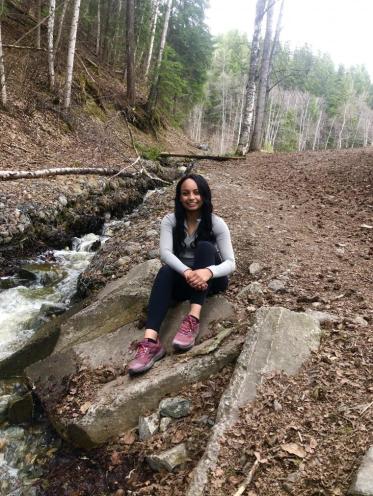- Managing your Practice
-
- Your Benefits
-

Introducing the ultimate Club MD experience
From work to play, and everything in between, we provide you with access to hundreds of deals from recognizable, best-in-class brands, elevating every facet of your life – from practice supports to entertainment, restaurants, electronics, travel, health and wellness, and more. Your Club MD membership ensures that these deals are exclusive to you, eliminating the need to search or negotiate.
Welcome to the ultimate Club MD experience. Your membership, your choices, your journey.
-
- Advocacy & Policy
-
- Collaboration
- News & Events
-

Stay Informed
Stay up to date with important information that impacts the profession and your practice. Doctors of BC provides a range of newsletters that target areas of interest to you.
Subscribe to the President's Letter
Subscribe to Newsletters
-
- About Us
-
Presidential Scholars Award-winner Kimberly Thomas: Creativity in medicine
July 12, 2021
News
Kimberley Thomas, a second-year student of the UBC Northern Medical Program in Prince George, is the second recipient of Doctors of BC’s Presidential Scholars Award in Medicine. The scholarship establishes an endowment that covers student and tuition fees, and textbooks for one medical student on an annual basis, for their entire medical education.
The selection process is rigorous, with recipients chosen based on an extensive range of criteria, from athletic achievements, to volunteer work, community giving, and artistic pursuits. Kimberley’s creativity, passion for health equity, and deep interest in palliative care made her an ideal candidate.
Born in Bulawayo, Zimbabwe, Kimberley moved to Calgary, Alberta, when she was a young child with her parents and two sisters. Working multiple jobs, her parents hoped to support their children through university. The scholarship allows Kimberley to freely pursue her studies. “A huge burden was taken off our family and for the first time, I felt like we could breathe. The award means so much. It means that people with backgrounds like mine can have a seat at the table in medicine.”
A keen volunteer, during her undergraduate studies Kimberley spent time volunteering with a health and family support society in Calgary, as well as a period at a rural Alberta hospice. Her experience and emotional connections formed with patients during this time were crucial.
“We’re experiencing a cultural change in how we approach end-of-life care, and as our population is aging, we know that most people want to stay close to home,” says Thomas. “I feel that in my future career, I might have the ability to help make that an option for everyone.”
Her voluntary work eventually spurred her on to complete a Master’s degree in health sciences, with a focus on building more community-based palliative care models; and using creative spaces to address health disparities.
In one community near Prince George, she observed a family physician take part in an art project with the residents, focusing on what health means to them. Creating a sense of belonging through art has power, says Thomas: “I feel as though it removes power differentials and creates an amazing opportunity to connect people. There was this humanness and partnership in bringing everyone together. We know science heals, but there is true potential for healing through art.”
Once she becomes a doctor, Kimberley is keen to foster an emotional connection with her patients, while working from a public health and policy standpoint. She hopes her story will inspire others.
“I think of my little cousins wanting to go to university because now they can see themselves as doctors. The generosity I experienced inspires me to bring it to others, especially to those in northern rural communities.”




